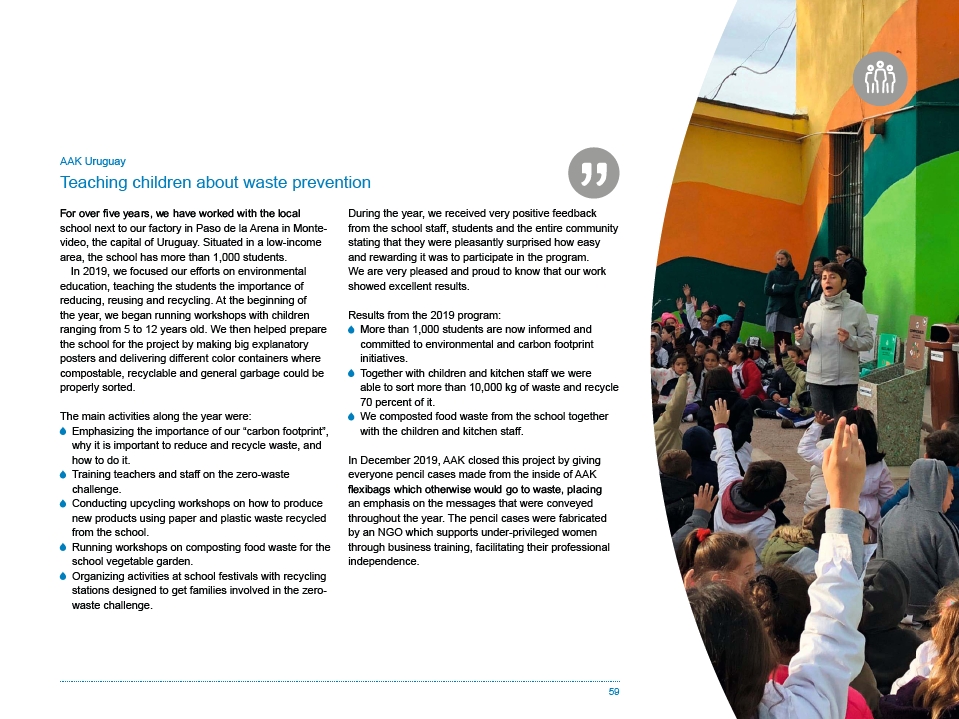
AAK Uruguay
Teaching children about waste prevention
)RURYHU¿YH\HDUVZHKDYHZRUNHGZLWKWKHORFDO
school next to our factory in Paso de la Arena in Montevideo,
the capital of Uruguay. Situated in a low-income
area, the school has more than 1,000 students.
In 2019, we focused our efforts on environmental
education, teaching the students the importance of
reducing, reusing and recycling. At the beginning of
the year, we began running workshops with children
ranging from 5 to 12 years old. We then helped prepare
the school for the project by making big explanatory
posters and delivering different color containers where
compostable, recyclable and general garbage could be
properly sorted.
The main activities along the year were:
Emphasizing the importance of our “carbon footprint”,
why it is important to reduce and recycle waste, and
how to do it.
Training teachers and staff on the zero-waste
challenge.
Conducting upcycling workshops on how to produce
new products using paper and plastic waste recycled
from the school.
Running workshops on composting food waste for the
school vegetable garden.
Organizing activities at school festivals with recycling
stations designed to get families involved in the zerowaste
challenge.
During the year, we received very positive feedback
from the school staff, students and the entire community
stating that they were pleasantly surprised how easy
and rewarding it was to participate in the program.
We are very pleased and proud to know that our work
showed excellent results.
Results from the 2019 program:
More than 1,000 students are now informed and
committed to environmental and carbon footprint
initiatives.
Together with children and kitchen staff we were
able to sort more than 10,000 kg of waste and recycle
70 percent of it.
We composted food waste from the school together
with the children and kitchen staff.
In December 2019, AAK closed this project by giving
everyone pencil cases made from the inside of AAK
ÀHLEDJVZKLFKRWKHUZLVHZRXOGJRWRZDVWHSODFLQJ
an emphasis on the messages that were conveyed
throughout the year. The pencil cases were fabricated
by an NGO which supports under-privileged women
through business training, facilitating their professional
independence.
59